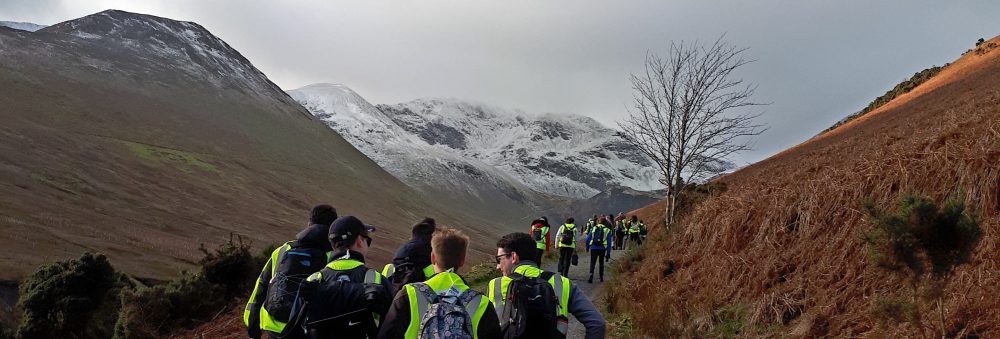
Kirsten Dutton PhD Student
Student Name: Kirsten Dutton
PhD Project Title: From sediment to rock: the role of microbes in the early lithification of sabkha sediments
PhD Project Summary: My research focuses on understanding the interactions between mineralisation processes and microbes in modern microbial mats of the Abu Dhabi coastal sabkha, a combined carbonate-evaporite-siliciclastic system. Owing to the extreme aridity and hypersalinity in the environment there is minimal predation and microbes flourish.
Microbial mats are layered biofilms, forming as microbes bind themselves together with substances they secrete called EPS (extracellular polymeric substances). It is within these layered structures and the surrounding sediments mineral processes occur and a number of techniques are being used, including in a laboratory based aquarium experiment, to isolate the causes of these processes. Fossil microbial mats found around the world show that these structures are some of the earliest signs of life on earth. Investigating these early lithification processes can inform our understanding of how these structures are ultimately preserved in the rock record. This project used a number of disciplines: geology, biogeochemistry and geomicrobiology.
Supervisors : Van der Land, C. (Newcastle University), Sherry, A. (Newcastle University) and Head, I.M. (Newcastle University)
List of Publications:
Lokier, S. W., Andrade, L. L., Court, W. M., Dutton, K. E., Head, I. M., Van Der Land, C., Paul, A. & Sherry, A. 2017. A new model for formation of microbial polygons in a coastal sabkha setting. The Depositional Record; 3(2): 201–208.
Paul, A., Lokier, S. W., Court, W. M., Van Der Land, C., Andrade, L. L., Dutton, K. E., & Sherry, A. & Head, I. M. 2018. Erosion-initiated stromatolite formation in a recent hypersaline sabkha setting (Abu Dhabi, United Arab Emirates). Preprint EarthArXiv.
What aspect of studying a PhD at Newcastle University do you enjoy the most?
Doing a PhD at Newcastle University has given me the opportunity to collaborate with brilliant people within the university and establish connections with researchers elsewhere in the world. It has also provided me with opportunities to expand my skills outside of my research through the faculty provided postgraduate researcher development programme (PGRDP) which has workshops on everything from scientific writing to coping with stress in your PhD.
Newcastle is a great city to live in as a student, it is compact, cheap and there is plenty to do in and around the city.
What advice would you give new PhD student/students considering studying a PhD at Newcastle University?
Find new ways to disseminate your research (papers, social media, public outreach etc.), establish a routine early on, stay on top of new research in your field, find a hobby which gives you some rest time away from your work.
